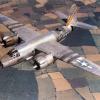Electronic Tachs
-
Members Online
- Justin Schmidt
- Samir13k
- TangoTango
- Kirch56H
- DCarlton
- Aerodon
- MikeOH
- 201Steve
- N201MKTurbo
- toto
- Ivan
- Fritz1
- Fix
- Stubby
- DXB
- Tom F
- MooneyTunes
- Baker Avionics
- Schllc
- Guy123
- Phil EF
- Fly Boomer
- 47U
- PeteMc
- Flyler
- hammdo
- glbtrottr
- flyingscot
- TGreen
- Sabremech
- Shawnson
- Nico1
- Jake@BevanAviation
- KSMooniac
- takair
- Igor_U
- kortopates
- 1980Mooney
- 1001001
- Lrn2Fly
- exM20K
- jamesyql
- MatthiasArnold
- Scooter
- Blaze


Recommended Posts